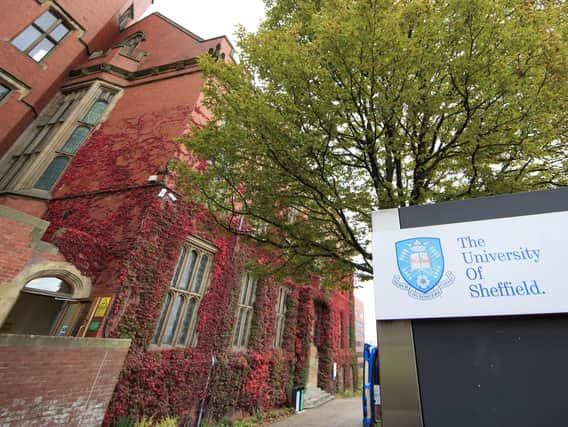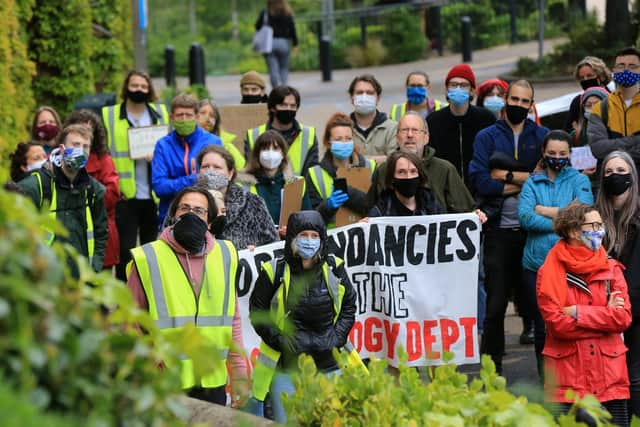University of Sheffield release full explanation of cuts to archaeology department and reveal record low student numbers - but commit to still taking part in local digs


The university's executive board last month voted to condense the world-renowned school and end undergraduate teaching to focus on a smaller number of successful postgraduate courses. Some staff and specialist research areas will be retained but under the auspices of other departments.
Although the decision has not yet been approved by the University Council, the announcement was met with outrage from the student body and from the archaeology community around the world.
Advertisement
Hide AdAdvertisement
Hide AdYet the university has now released data showing the shocking decline in popularity of first degrees in the subject - which the archaeological establishment agrees is a wider trend linked to higher tuition fees and concerns over employability prospects.


For the academic year beginning this September, only 10 undergraduate applicants currently hold offers to study archaeology at Sheffield - meaning that as there are 11 permanent research and teaching posts, there will be more staff than students.
However, there has been growth in specific areas of the discipline aligned to specialist postgraduate programmes, many of which are popular with overseas applicants. These courses will remain and receive investment.
There has been a reduction in government subsidies to certain academic subjects which, combined with lower income from tuition fees, has made archaeology unviable.
Advertisement
Hide AdAdvertisement
Hide AdA review of the department was commissioned involving external parties to come up with options for its future, though members and supporters have questioned the validity of this process.
A complete closure of the department was vetoed in favour of an option to 'retain key areas of strength in research'. These include cultural heritage and osteoarchaeology. Current undergraduates would be able to complete their degrees.
Department members had pointed out that they run a popular outreach programme, which includes short courses for the public and participation in community events such as festivals. Staff and students have taken part in local digs such as the Castlegate excavations, and the university has pledged that involvement in site work will continue.
The University Council, the institution's governing body, will take advice from the Senate - which oversees academic matters - before a decision is issued on July 12.
Advertisement
Hide AdAdvertisement
Hide AdA University of Sheffield spokesperson said: “While student recruitment across the University of Sheffield remains very strong, like many other leading universities it has experienced declining numbers of students choosing to read archaeology. The University’s executive board commissioned a review of archaeology to consider how it could address a challenging external environment, and support and strengthen archaeology teaching and research.
“The board has supported a recommendation that it believes will not only maintain and support the archaeology discipline at the University, but also ensure it thrives, sustaining it by focusing on postgraduate studies and investing in key areas of excellence which have contributed to Sheffield’s reputation as a top 100 global university with world-leading research and innovation.
“Although no decision has yet been taken, the recommendation would also ensure that many fantastic and important projects and partnerships within the city and its communities, and much further afield, would continue to flourish.”
--